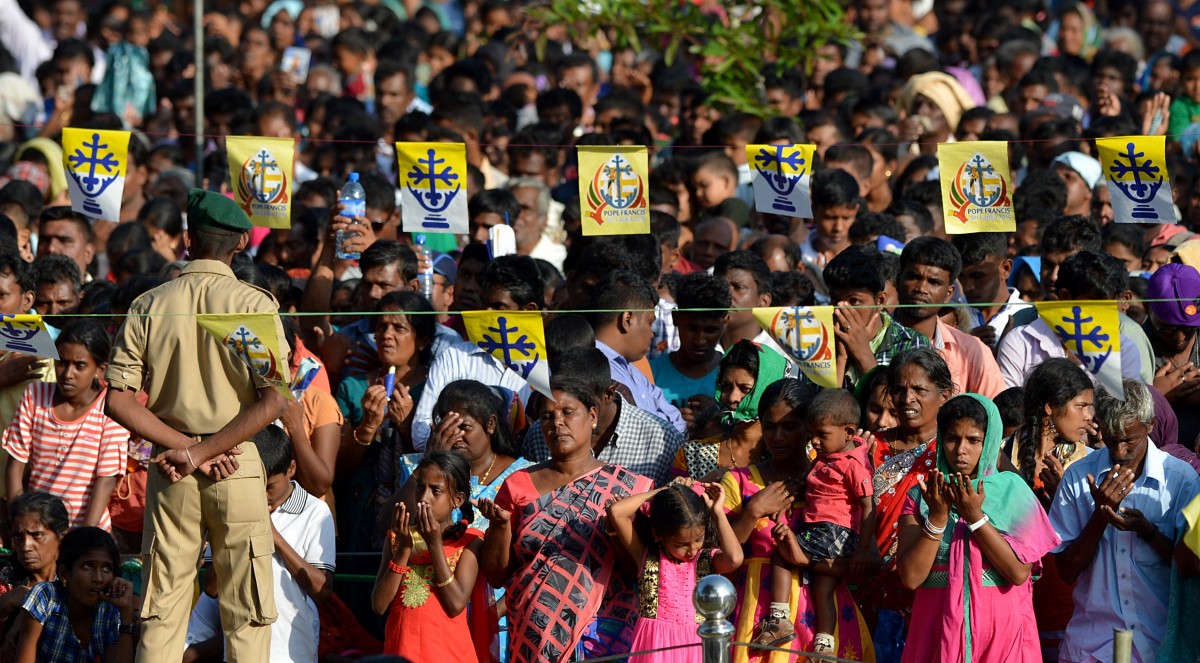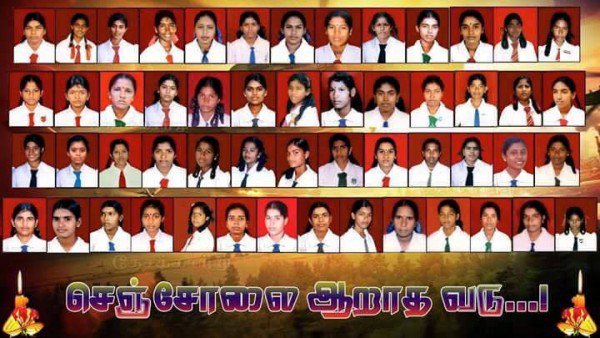 by Anjali Manivannan, ‘Forbes,’ New York, August 14, 2016
by Anjali Manivannan, ‘Forbes,’ New York, August 14, 2016
Anjali Manivannan is Legal Researcher and Advocacy Coordinator for People for Equality and Relief in Lanka (PEARL).
The day of the air raid, 16 bombs were dropped on more than 400 Tamil girls, mostly aged 15–18, attending a first aid workshop at the Senchcholai Girls Orphanage in Mullaitivu District. The government claimed that the orphanage was a Liberation Tigers of Tamil Eelam (LTTE) training camp for child soldiers. However, international observers, including UNICEF and the Sri Lanka Monitoring Mission (SLMM), found no evidence of LTTE installations or weapons during their investigation that same day. The executive director of UNICEF decried this act, concluding that the children were “innocent victims of violence.”

Photo courtesy s. varatharajah
More disturbingly, the LTTE had provided the military with the GPS coordinates of the orphanage to ensure its protection as a humanitarian zone. In light of these facts, the most recent UN investigation on Sri Lanka determined that the military failed to abide by international humanitarian law and its principles of distinction and proportionality by bombing the Senchcholai Girls Orphanage, a primarily civilian object.
It’s also necessary to note that the military committed additional war crimes by using GPS coordinates to target protected humanitarian zones. In 2009, doctors gave the government GPS coordinates of makeshift hospitals in the government-established “No Fire Zone” only to have the military deliberately shell them. Unfortunately, both during and after the war, the world has been slow to take action against Sri Lanka’s war criminals.
The UN High Commissioner for Human Rights has repeatedly emphasized the importance of international participation in accountability processes to ensure their independence, impartiality and credibility. Last fall, the government agreed with this assessment and pledged to involve international judges, prosecutors, lawyers and investigators. Since then, however, the government has refused to include international judges, saying it will only allow international technical assistance.
Impunity for atrocities is never an option. However, under the government’s conception of justice, the Senchcholai girls and other Tamil victims of indiscriminate and disproportionate attacks will be denied the justice they deserve. To prevent this, the United Nations, the United States and other states must strongly push the government to fulfill its commitments and integrate international staff, including judges, into criminal trials. Concurrently, transitional justice experts and local and diaspora groups must strategize about forms of technical assistance that could hybridize domestic prosecutions. Such technical assistance could include expertise and advice on investigating and prosecuting conflict-related sexual violence against men and women as well as grave violations against children—violations that even sophisticated domestic court actors are not equipped to address.
Additionally, in the face of entrenched domestic impunity, there are alternative avenues of redress that can and should be pursued. One path is through the UN Security Council’s power to refer non-member states such as Sri Lanka to the International Criminal Court (ICC), which got Darfur and Libya to The Hague. However, due to the political considerations of veto-holding Council members, a referral remains unlikely. A more plausible option would be to utilize the legal principle of universal jurisdiction, which allows states to prosecute perpetrators of international crimes committed anywhere. Thanks to universal jurisdiction, perpetrators of mass atrocities around the world—from Nazi Adolf Eichmann to Chilean Augusto Pinochet to, most recently, Chadian Hissène Habré—have been prosecuted and convicted in third-party states for their crimes.
To best respect the memory of the victims of the Senchcholai massacre ten years ago, as well as the thousands more Tamils killed and violated throughout the war, perpetrators must be brought to justice. Opportunities for justice exist through the provision of international expertise and advice as technical assistance, the use of universal jurisdiction and, albeit unlikely, a referral to the ICC. The Tamil victims of Sri Lanka’s many intentional onslaughts shouldn’t be forced to suffer another decade of impunity; instead, the available paths to justice must be followed to end impunity’s reign.